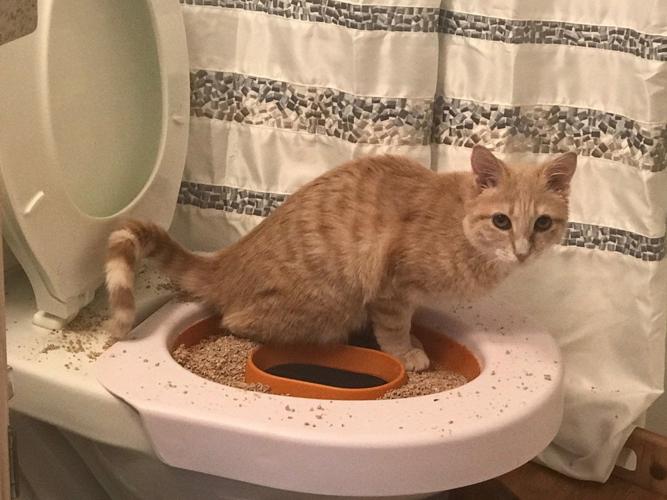Just how do you really feel when it comes to Can You Flush Cat Poo or Litter Down the Toilet??

Intro
As feline proprietors, it's necessary to be mindful of exactly how we deal with our feline close friends' waste. While it may seem practical to purge cat poop down the bathroom, this technique can have detrimental repercussions for both the setting and human health.
Alternatives to Flushing
Luckily, there are more secure and more liable ways to take care of feline poop. Take into consideration the complying with choices:
1. Scoop and Dispose in Trash
The most typical method of taking care of cat poop is to scoop it right into a biodegradable bag and throw it in the garbage. Make certain to use a specialized clutter inside story and deal with the waste immediately.
2. Usage Biodegradable Litter
Select biodegradable feline litter made from materials such as corn or wheat. These litters are eco-friendly and can be securely disposed of in the trash.
3. Bury in the Yard
If you have a yard, consider burying cat waste in an assigned area away from veggie gardens and water sources. Make sure to dig deep sufficient to avoid contamination of groundwater.
4. Mount a Pet Waste Disposal System
Invest in a family pet waste disposal system specifically designed for cat waste. These systems utilize enzymes to break down the waste, reducing odor and ecological effect.
Health Risks
In addition to ecological problems, flushing cat waste can likewise present wellness dangers to people. Cat feces might consist of Toxoplasma gondii, a parasite that can cause toxoplasmosis-- a potentially extreme health problem, particularly for expectant women and individuals with weakened immune systems.
Ecological Impact
Flushing cat poop presents dangerous microorganisms and parasites right into the water, posturing a significant risk to water communities. These impurities can adversely impact aquatic life and compromise water top quality.
Final thought
Responsible animal possession expands beyond giving food and shelter-- it additionally includes correct waste management. By avoiding flushing cat poop down the bathroom and choosing alternate disposal approaches, we can decrease our ecological footprint and shield human wellness.
Why You Should Never Flush Cat Poop Down the Toilet
A rose by any other name might smell as sweet, but not all poop is created equal. Toilets, and our sewage systems, are designed for human excrement, not animal waste. It might seem like it couldn’t hurt to toss cat feces into the loo, but it’s not a good idea to flush cat poop in the toilet.
First and foremost, assuming your cat uses a litter box, any waste is going to have litter on it. And even the smallest amount of litter can wreak havoc on plumbing.
Over time, small amounts build up, filling up your septic system. Most litter sold today is clumping; it is made from a type of clay that hardens when it gets wet. Ever tried to scrape old clumps from the bottom of a litter box? You know just how cement-hard it can get!
Now imagine just a small clump of that stuck in your pipes. A simple de-clogger like Drano isn’t going to cut it. And that means it’s going to cost you big time to fix it.
Parasitic Contamination
Believe it or not, your healthy kitty may be harboring a nasty parasite. Only cats excrete Toxoplasma in their feces. Yet it rarely causes serious health issues in the cats that are infected. Most people will be fine too if infected. Only pregnant women and people with compromised immune systems are at risk. (If you’ve ever heard how women who are expecting are excused from litter cleaning duty, Toxoplasma is why.)
But other animals may have a problem if infected with the parasite. And human water treatment systems aren’t designed to handle it. As a result, the systems don’t remove the parasite before discharging wastewater into local waterways. Fish, shellfish, and other marine life — otters in particular — are susceptible to toxoplasma. If exposed, most will end up with brain damage and many will die.
Depending on the species of fish, they may end up on someone’s fish hook and, ultimately on someone’s dinner plate. If that someone has a chronic illness, they’re at risk.
Skip the Toilet Training
We know there are folks out there who like to toilet train their cats. And we give them props, it takes a lot of work. But thanks to the toxoplasma, it’s not a good idea.

I ran across that entry about How to Dispose of Cat Poop and Litter Without Plastic Bags while surfing around the search engines. Those who enjoyed our blog post please don't forget to share it. Thank you for going through it.
Book Services